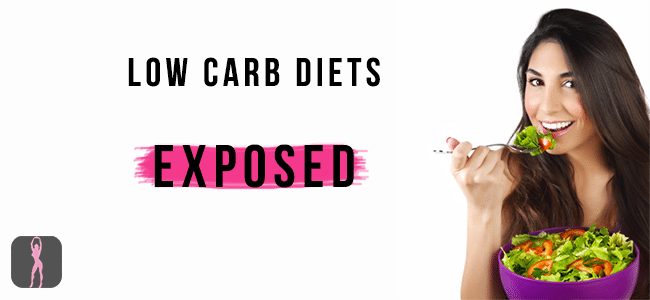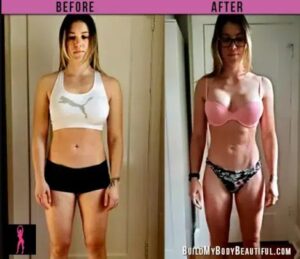A common nutrition trend that keeps coming back into the mainstream is slashing carbs to shed those extra pounds – known as low carb dieting. Atkins, Ketogenic, Paleo… they are all very similar in their guidelines on restricting carbohydrate consumption for weight loss. Foods high in carbohydrates, such as bread and pasta are restricted and replaced with protein rich foods (e.g. meat) and foods low in carbohydrates (e.g. green leafy vegetables). They often talk about how easy and satisfied people feel while following these restrictions. What they fail to mention are the risks and dangers of prolonged low carb dieting.
Low Carb Dieting: Scientific Controversy
There is significant controversy regarding low-carb diets and little consensus within scientific community on the impact of low-carb diets on weight and health. Some studies have shown that low-carb diets set people up to fail and adversely affect health, while other research suggests that it may positively influence diseases such as diabetes, cancer and autism.
Low Carb Dieting: Understanding Carbs in Our Body
Before I get into these risks, I wanted to clear up some details on carbs and your body. Your body stores carbohydrate, mostly in your liver and muscles, in the form of glycogen.
– If you’re sedentary, not really exercise much and following a low carb diet, this amount of storage carbohydrate is more than sufficient to get you through a typical day
– If you’re active and having a low carbohydrate diet, you can easily burn through your liver and muscle glycogen stores in anywhere from a day to a week.Low Carb Dieting: Quick Fix
If you’re purely fixed on the number on the scale, a low carbohydrate diet can quickly shed 5-10 pounds (or more), which seems quite satisfactory. This is that since glycogen carries up to four times it’s weight in water, But the problem is, most of what you’ve lost is essential energy you need to do intense physical activity and water.
If you’re an athlete or a physically active individual, your body is forced to utilize fat as a fuel. Fat can provide tens of thousands of calories of readily utilizable fuel, but the problem is that it burns far more slowly than carbohydrate.Low Carb Dieting: Impact on Activity
This means that if you’re on a strict low carbohydrate diet, you can say goodbye to intense weight training, interval training, or just about any activity that would be considered “tempo”, “threshold”, or “intervals”. And this is the stuff that adds lean muscle to your body, boosts your metabolism and gets you fit fast – compared to a slow and sluggish slog in your “fat-burning zone”. This is not negotiable by your body. It is simple physiology. When you deplete muscle glycogen, there is a directly proportional increase in muscle fatigue, and also an increase in muscle catabolism (direct metabolism of your body’s own muscle protein, or conversion of that protein into glucose via gluconeogenesis). Many people on a low-carbohydrate diet simply stop exercising, because it can suck so much.
Low Carb Dieting: Metabolic Aftermath
As you lose muscle mass, your metabolism drops even more. This means your muscles don’t burn as many calories or boost your metabolism as much as we all like to think.
For active people, low blood sugars are much more common when lack of quick fuel is present. Any attempt to eat low carbohydrate in conjunction with exercise, for the pure purpose of “controlling blood sugar levels” could do a significant amount of harm over good.Low Carb Dieting: Product “Woahs!”
Typical “low carbohydrate” meal replacement products, other low carb or sugar-free snacks often contain sugar alcohols like maltitol, and are chock full of artificial ingredients and preservatives that are highly processed ingredients. If your low carbohydrate diet involves boxed, wrapped and packaged food, it probably falls into this category.
Bottom Line
Not allowing yourself certain types of foods could lead to feelings of deprivation. But the thing is, all diets restrict something. They either restrict food groups or restrict calories. For some people, the calorie restriction approach may be more feasible.
It is true that protein is more satiating than carbohydrate or fat. That is, if you ate 200 calories worth of protein, carbohydrate or fat, you would feel most satisfied after eating the protein. Therefore, if your diet is protein based, you will eat less – much less.The Alternative: Carb Cycling
For those you are very carbohydrate sensitive, have had problems losing the fat, or those who have reached a fat loss plateau, carb cycling may be an approach to try over purely low carb dieting. This method involves dramatically decreasing carbohydrate intake for few days to a level that would be difficult to maintain for long periods of time, whilst increasing protein intake, followed by a raise of carbohydrates for one day. You then repeat this cycle. With each cycle you should experience weight loss without loss of energy or muscle mass. There are different variations for the number of low carb to high carb days and it is important to find out what works best for you (in our diet plans, we have been using 1 and sometimes 2 high carb days, followed by a low carb day and medium carb day in between). By following this cycle you avoid the unpleasant side-effects that kick in when your carbohydrate stores (glycogen) are depleted. This method also prevents your body from switching into starvation mode and avoids your body from adapting to the low quantities of carbohydrates by slowing your metabolism, decreasing thyroid hormone output etc. Carb cycling is great because it follows the two fundamental principles of permanent weight loss – keep your body guessing (don’t let your body adapt) and keep your metabolic rate up.
References
1. Golay A, et al. Similar weight loss with low- or high-carbohydrate diets . Am J Clin Nutr. (1996)
2. Golay A, et al.Weight-loss with low or high carbohydrate diet . Int J Obes Relat Metab Disord. (1996)
3. Parker B, et al. Effect of a high-protein, high-monounsaturated fat weight loss diet on glycemic control and lipid levels in type 2 diabetes . Diabetes Care. (2002)
4. Noakes M, et al. Effect of an energy-restricted, high-protein, low-fat diet relative to a conventional high-carbohydrate, low-fat diet on weight loss, body composition, nutritional status, and markers of cardiovascular health in obese women . Am J Clin Nutr. (2005)
5. Mansell PI, MacDonald IA. The effect of underfeeding on the physiological response to food ingestion in normal weight women. Br J Nutr. (1988).
6. Kozusko FP. Body weight setpoint, metabolic adaption and human starvation. Bull Math Biol. (2001)
7. Dulloo AG, Jacquet J. Adaptive reduction in basal metabolic rate in response to food deprivation in humans: a role for feedback signals from fat stores. Am J Clin Nutr. (1998)by: Alysha Coughler, Body Beautiful Coach and Registered Sports Dietitian
About the Author: Ana Plenter
Ana Plenter is a an Award Winning Personal Trainer, Fitness Competitor & Competition Coach and the Founder of Build My Body Beautiful & Body Beautiful Fitnes
Vavada зеркало для онлайн игры доступно прямо сейчас
Vavada зеркало для онлайн игры доступно сейчас Vavada зеркало для онлайн игры доступно прямо сейчас Ищете надежное решение для доступа к онлайн игре Vavada? Мы представляем вам новое зеркало, которое обеспечит стабильное подключение и максимальное удовольствие от игры. Теперь вы можете беспрепятственно наслаждаться любимыми играми даже в условиях блокировок. Наше





